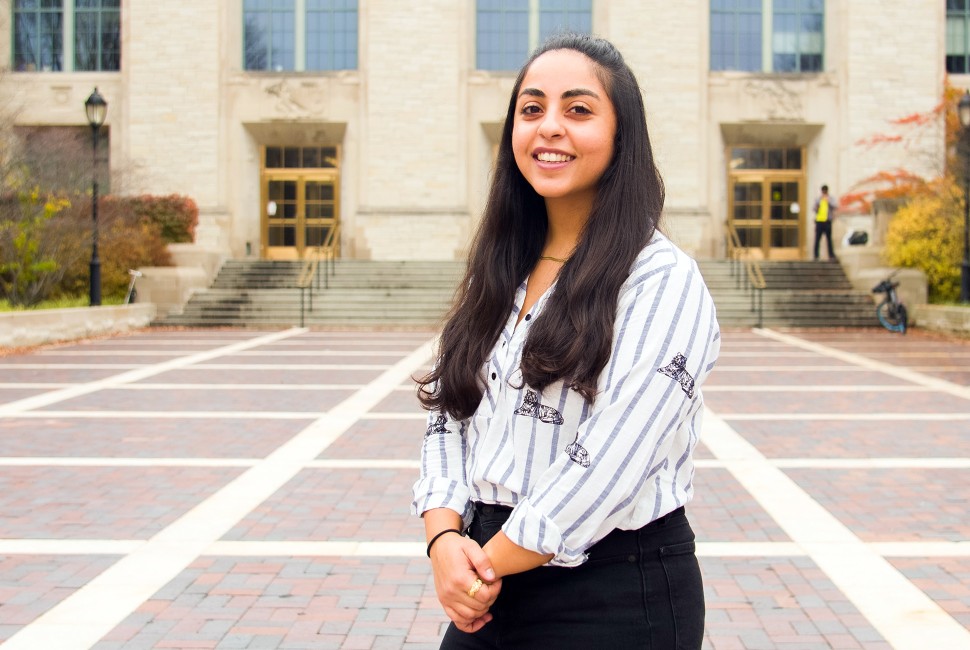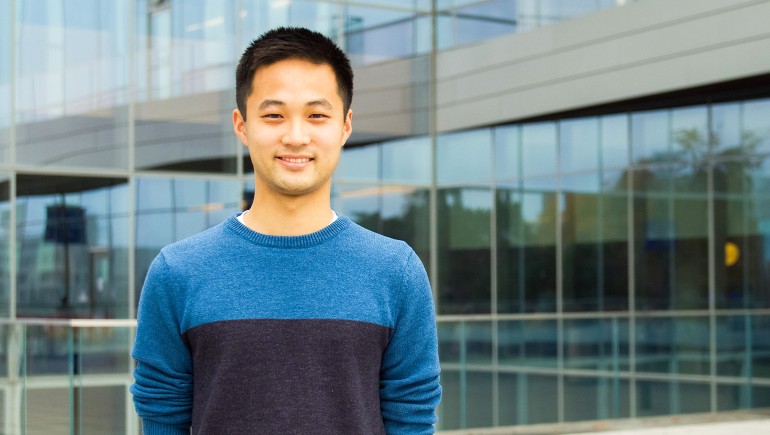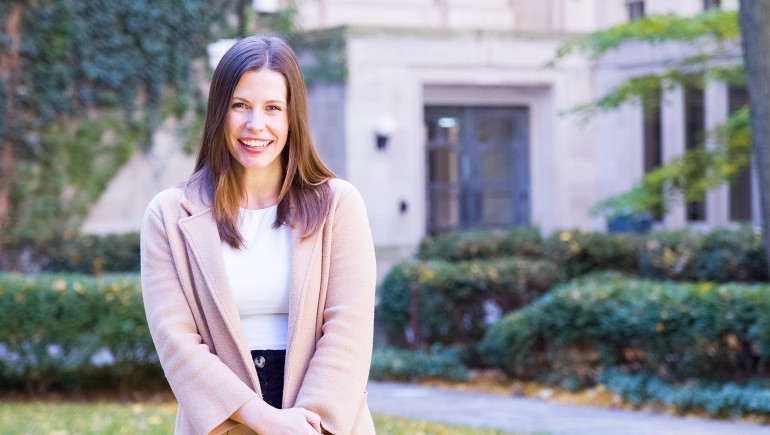Amid the most critical decade for climate action, governments, industries and communities around the world are intensifying efforts to rein in greenhouse gas emissions and halt imminent harm to vulnerable ecosystems. Universities, including Northwestern, are proving to be pivotal partners, developing technological, policy and societal innovations to fuel these efforts.
Many of the global collaborations generating solutions to the climate crisis are forged at the United Nations Climate Change Conference of the Parties (COP27) where countries come together to act on achieving the world’s collective climate goals and negotiate international agreements intended to stave off climate catastrophes.
For the second consecutive year, Northwestern is sending a delegation of faculty and graduate students to COP27, which this year takes place Nov. 6-18 in Sharm el-Sheikh, Egypt. Northwestern participants will be among the approximately 40,000 delegates at the event, including government leaders from nearly 200 nations.
The delegation is supported by the Northwestern Roberta Buffett Institute for Global Affairs. The Institute for Sustainability and Energy at Northwestern (ISEN) also supported the process for petitioning access to and reviewing proposals for delegate credentials.
Representing eight different schools and departments across the University, the delegates have diverse expertise in areas including Indigenous peoples’ approaches to sustainability, the Earth’s carbon cycle, environmental law and climate finance. At COP27, they will engage in negotiations, share and conduct research, and build global connections, contributing to the next set of innovations driving climate action.
Annelise Riles, executive director of the Buffett Institute and associate provost for global affairs at Northwestern, will lead the delegation. In partnership with the U7+ Alliance of World Universities, for which Northwestern serves as Secretariat, as well as the Worldwide Universities Network, the Italian University Network for Sustainable Development and the University Climate Change Coalition, Riles also will moderate a panel discussion at COP27 focused on universities’ role as key co-creators of solutions with governments, community and industry.
Northwestern Now spoke with three delegates about their work and what they hope to accomplish at COP27.
Niloufar Sarvian
“I feel like I’m a software engineer in the early ’90s — I have an edge on an industry that’s about to be world-changing.
“I’m a paleoclimatologist, which means I study Earth’s past climate. Essentially, I'm an expert on how the carbon cycle works, which is how climate is controlled. I want to work in carbon dioxide removal — removing CO2 from the atmosphere, which people have just started thinking about en masse in the last two years. ISEN helped me bridge the space between policy, business and science, so I got to take entrepreneurship classes, and I’ve been attending workshops with people working on creating American policies to ensure we remove carbon dioxide from the oceans in a safe way. Through COP27, I want to meet people who are thinking about this problem on a more international scale.”
Sarvian is a Ph.D. candidate in Earth and planetary sciences at the Weinberg College of Arts and Sciences. After completing her Ph.D., she will join Marble, a climate tech venture studio headquartered in Paris, as a founder-in-residence to build a startup focused on decarbonization.




